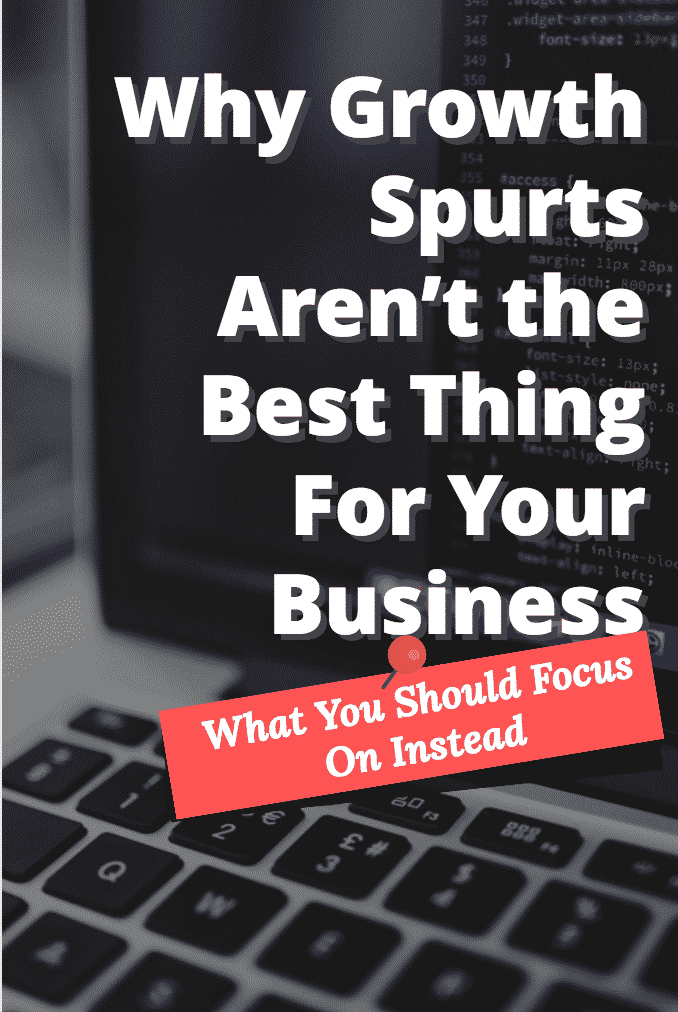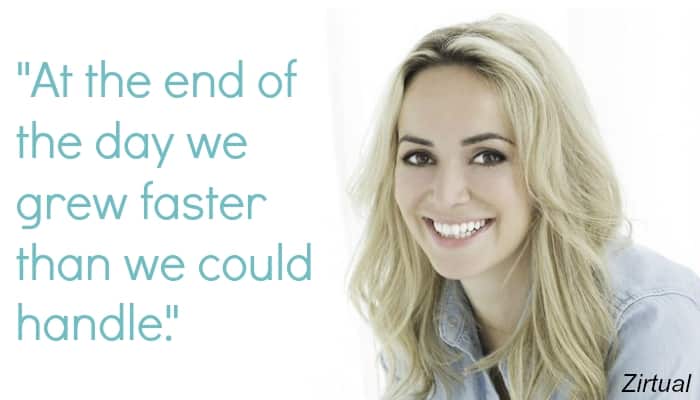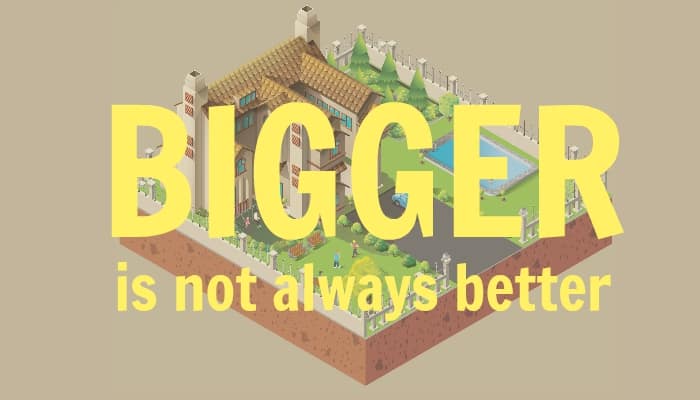Did you hear the one about the big startup that suddenly went under?
No, the other one. No, the OTHER other one.
While that whole official “dot-com bubble” thing was going on way back when Y2K was still in the cultural consciousness – feel old yet? – it seems like startups are still going boom-or-bust wherever you look.
Which puts one big question on the mind of every business owner out there:
How do I make sure MY business isn’t the next one to tank?

Story time.
In early August, the virtual assistant company Zirtual announced that it was folding. Before being acquired by another business, they unceremoniously laid off their entire staff of more than 400 employees via email at 1:34 AM. Most of them had no idea that it was coming, to the extent that Zirtual is now facing a lawsuit alleging that it violated US labor laws.
A fiasco like that can make anyone feel more than a little skittish. To the outside observer – and apparently, most of their employees – Zirtual had been doing just fine.
And then poof, gone.
Kind of a scary thought, right?
Fortunately, though, there are steps you can take so that your business isn’t the next cautionary tale.
First and foremost?
[easy-tweet tweet=”Focus on sustainability – not just growth.” user=”meetedgar” usehashtags=”no”]
When it comes to your business, bigger isn’t always better – and growth you can’t sustain is a ticking time bomb.
Growing an unsustainable business is like having an enormous house you can’t afford to maintain. Yeah, it’s impressive on the outside, but it’s only a matter of time before it starts looking shabby.
Make sure your business model is scalable, or else you can burn yourself out. For example, a private coach or consultant may find that doing one-on-one client work is the bulk of their business when they’re starting out – but no matter how high the demand, you can only do so many consultations in a day. Its scalability has limits. (Using your expertise to create a course, on the other hand, or a series of books or videos, IS scalable.)
The other major distinction when it comes to sustainability versus growth? Be mindful of where your money comes from.
This is a lot easier when your business is entirely bootstrapped, or self-funded – because you really don’t have a choice. Your funding has to come out of your profits, because that’s the only money you have coming in.
Companies like Zirtual can get into trouble because they rely too much on the largesse of their investors, and when the investments stop coming, they don’t have the sustainability to turn profits on their own. (And in a case like Zirtual’s, news that you’re not getting the investment you were counting on might come almost literally at the last minute.) In the words of their founder and CEO Maren Kate:

Even in our own company, sustainability is something we’ve had to pay attention to from day one. We started with a nest egg from another entirely self-funded business, but we’d have burned through it pretty quickly if we didn’t limit our growth to what we could sustain. Our team almost doubled in size in our first year, but it didn’t all happen at once.
Design a business that can grow, and grow only as quickly as you can sustain on your own. And that means you have to do one very, very hard thing:
Be patient.
Building a sustainable, bootstrapped business can be slow going.
No matter how clear your vision is on day one, it can take years before you really gain momentum.
That probably isn’t what you want to hear.

But bootstrapping can also force your business to become the best version of itself – and in the long run, you’re better off for it.
You get to see what works and what doesn’t, and make adjustments along the way. Your business stays lean, agile, and adaptable – and isn’t that kind of independence one of the reasons you wanted your own business in the first place?
Depending solely on customers to confirm the value of your business in actual dollars may be frustrating at first, but it necessitates a keen sense of what you need to do to become profitable and stay profitable. (Sustainability, remember?)
And here’s the thing about that:
Always define your own success.
Don’t try to be like the other businesses in your field – even the big, successful ones.
Don’t, don’t, don’t.
Because who they are is different from who you are, and the way they define success may be a lot different from how you do, too.
A business that relies on outside funding to stay afloat more than its own sustainability might not have the same goals you do.
While you build a business focused on attracting customers, they might build a business focused on attracting investors. While your goal may be to own your business for years, theirs might be to get acquired as quickly as possible and walk off with a big burlap bag full of cash.
Other businesses don’t get to define whether you’re successful. Only you do.
Which is exciting! Sure, you might feel like you’re missing out on some cool points. But when it comes to your business, how do you decide when you’ve made it?
Is it when you’re the biggest name in your industry, and you’re on a yacht gnoshing on roast koala with venture capitalists? When someone offers to buy you out for a gazillion dollars? Or is it when you have a business that makes more than it spends, and that affords you the independence and the lifestyle you want?
Staying focused on your own standards and goals – instead of trying to meet what you imagine are someone else’s – helps you make decisions that are healthier for your business.
What happens next?
Granted, this all makes it sound pretty simple.
It’s not.
Building and maintaining a successful business is really, really hard – and focusing on sustainability and responsible growth doesn’t actually guarantee anything. (Wouldn’t that be awesome?)
But at the same time, if you’re trying to avoid becoming a cautionary tale? There are certainly worse places to start than being responsible, being patient, and being yourself.



